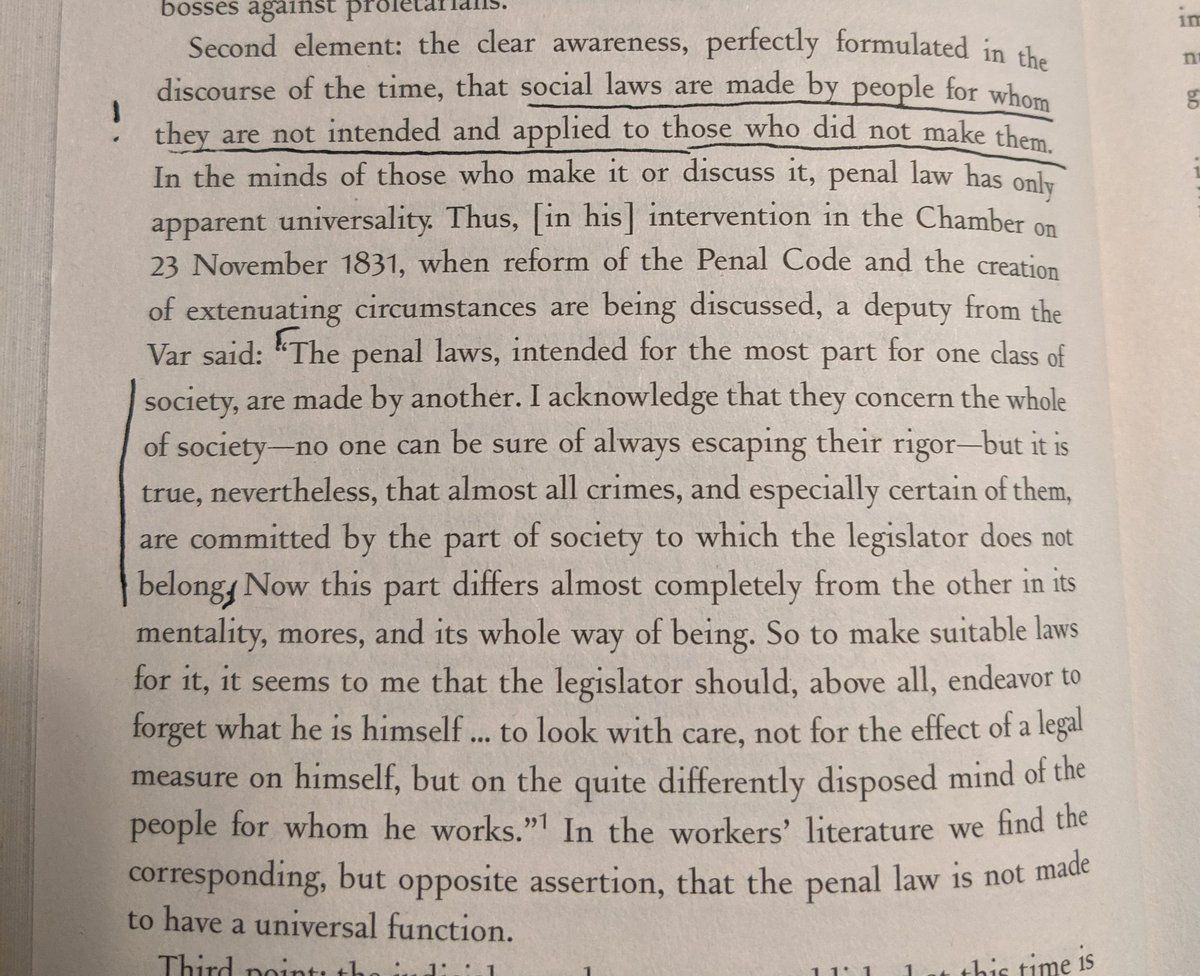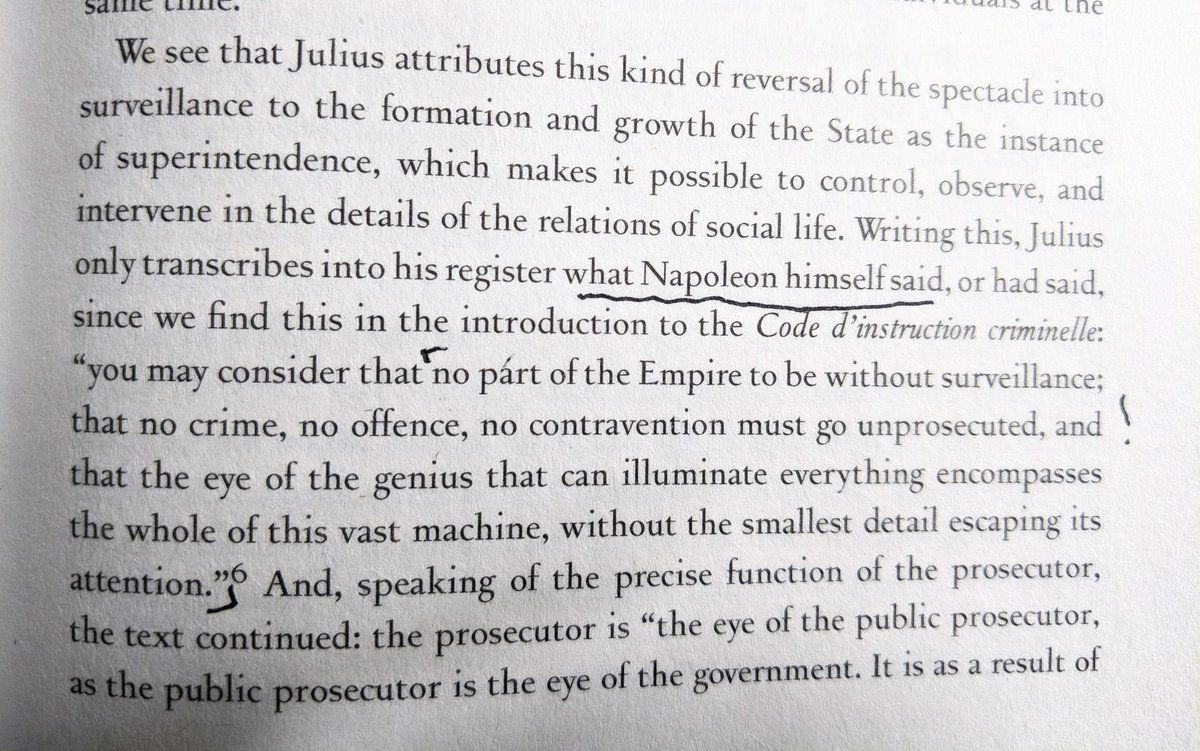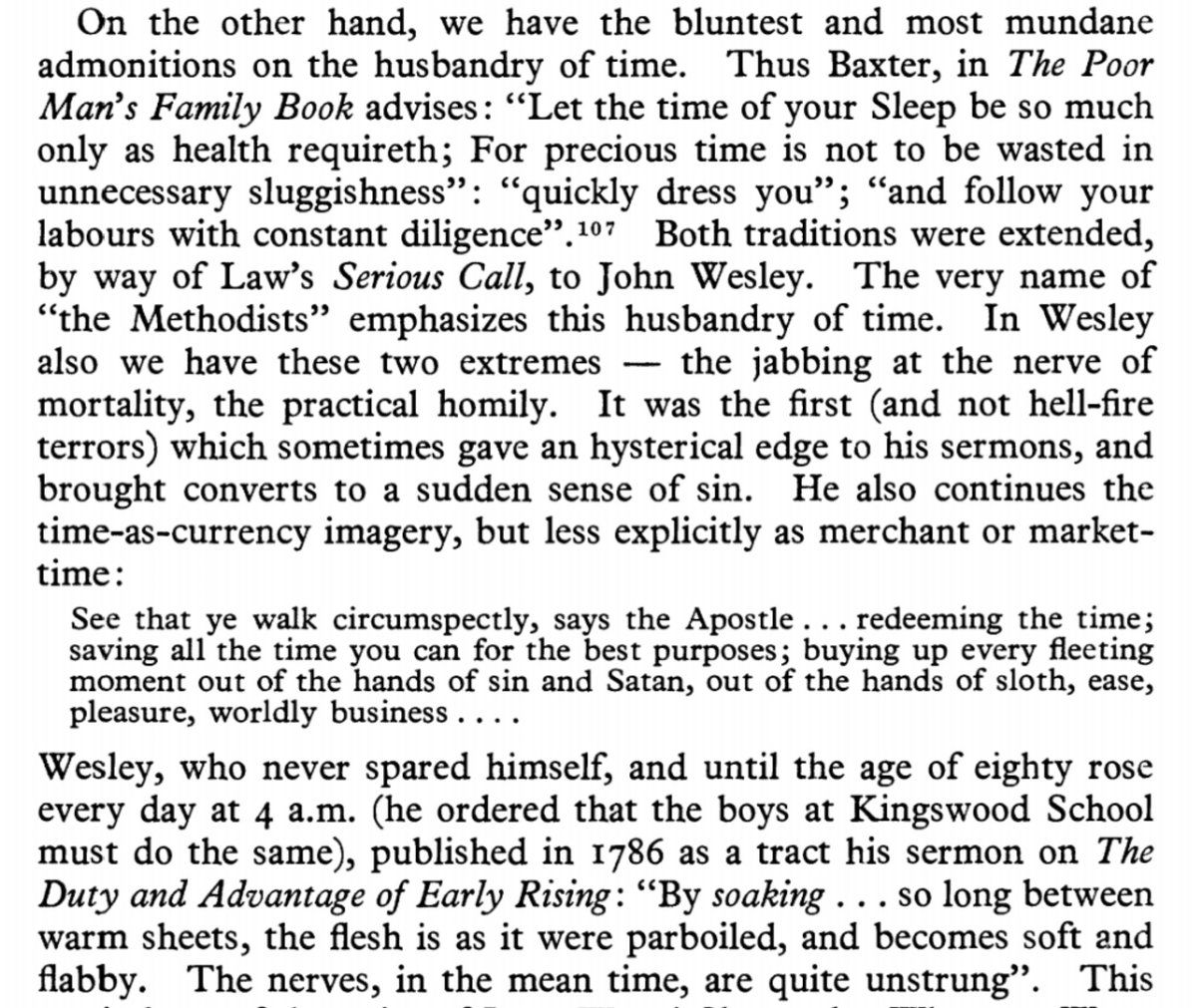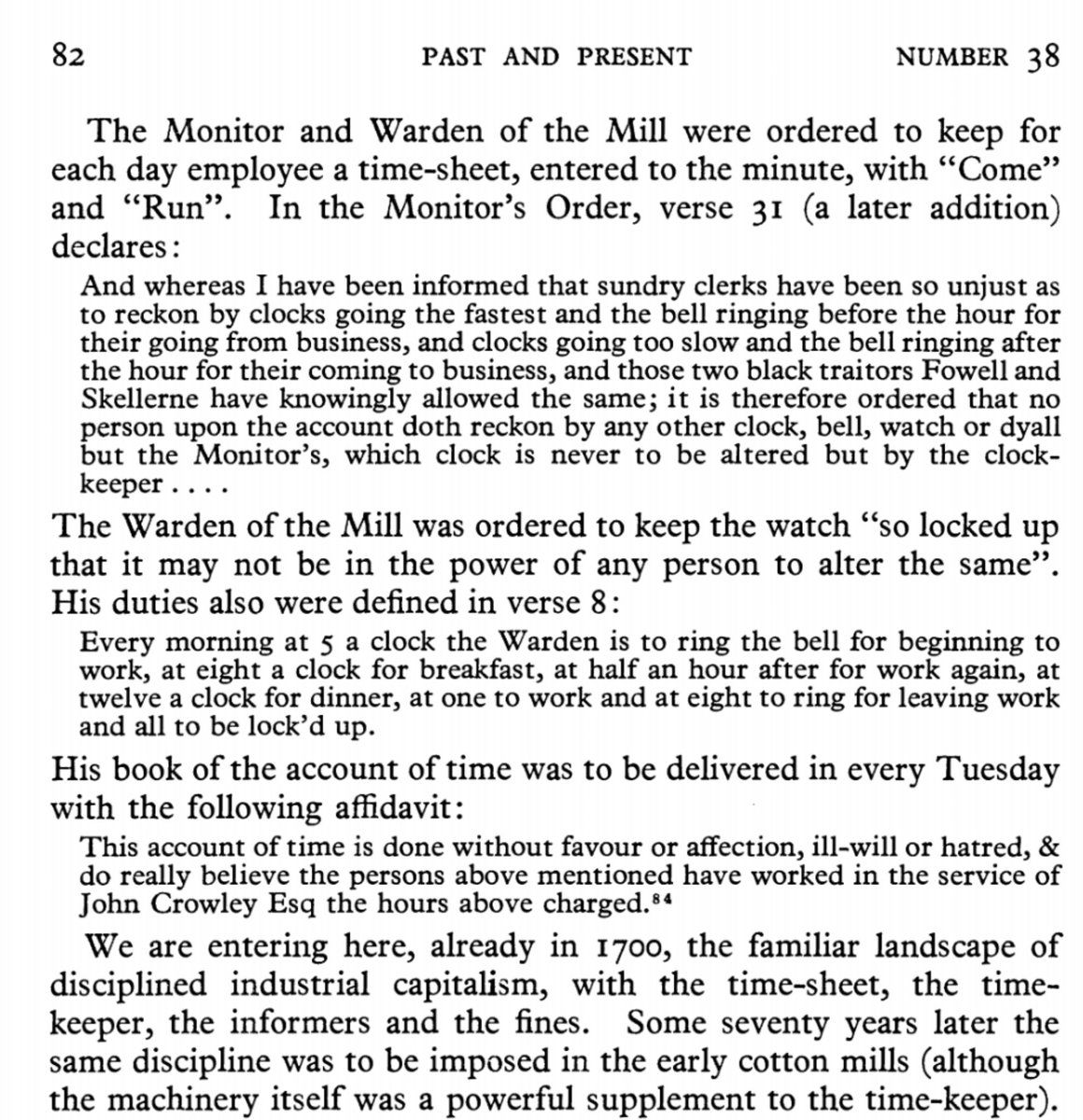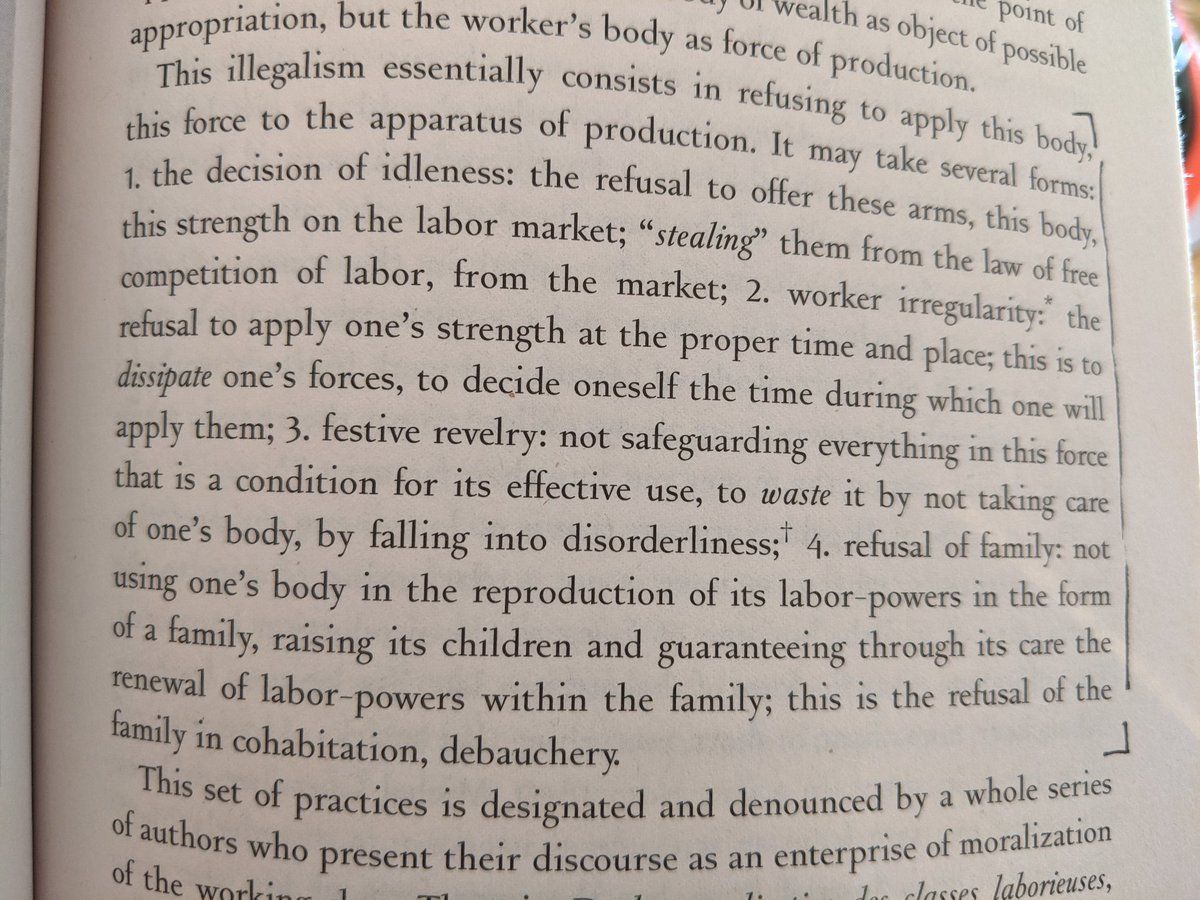-
Re the French penal system… “One thing is clear: we are in the midst of a social war, which is not the war of all against all, but the war of rich against poor, owners against those who have nothing, of bosses against proletarians." (22)
-
Much of Foucault's research technique echoes Chomsky's: find the texts where the powerful (speaking to one another) confirm the most radical analysis of their aims and strategies. Or, as we say nowadays, where they say the quiet part out loud.
-
“and that the eye of the genius that can illuminate everything encompasses the whole of this vast machine, without the smallest detail escaping its attention.” 1984 avant la lettre.
-
Foucault argues that the creation of prisons and of penitentiary-style self-regulation "link[ed] together morality, capitalist production, and State apparatus." (112)
-
Highlights a more-than-coincidental symmetry between prison-form and wage-form: time is the measure of both, and one "pays a debt to society" through captivity in prison, while being reformed under state supervision.
-
E.P. Thompson is cited a lot here but not (that I've seen) his brilliant piece that connects these dots: Time, Work-Discipline, and Industrial Capitalism sv.uio.no/sai/english/research/projects/anthropos-and-the-material/Intranet/economic-practices/reading-group/texts/thompson-time-work-discipline-and-industrial-capitalism.pdf
-
One of Thompson's points is that new technology (ubiquitous clocks, work records, synchronized work hours) *created* the concept of time as a thing that can be used wisely or wasted. And "wisely" meant giving it to one's employer or to God.
-
Hence the creepy image of Judgment Day as featuring a Great Employer toting up your use of your life on a ledger. A stunning symmetry between God and the capitalist employer.
-
Private police in the ports (who make sure workers don't steal the wealth stacked up in front of them) are the model…
-
(and this already a big shift, from the pre-modern weaver "who possessed his skill, tools, raw material, and housing" to the wage worker, surrounded by "things regulated solely by the principle: 'this is not yours.'")
-
… the emerging penal system criminalizes working class "immorality." Foucault argues this is just like banning theft at the warehouse, except what the employee steals is "his own body, the labor-power that the employer considers he owns." (173)
-
(Incidentally, this whole narrative shows just how much ground Marx's Capital gives up by assuming that workers are simply compelled to work by need and not the various laws and punishments against the poor.
-
The counter tradition of seeing proletarians as forced into their labor runs through Polanyi, Piven and Cloward, etc.
-
Some, perhaps most Marxists have seen enclosure and proletarianization as historically necessary. Other left traditions have raised deeper questions that remain vital today.)
-
France (1749-1890) had a straight up pass system for workers. You needed to show hours in your book and your employer's permission to travel to prove you weren't a vagabond, the latter being a criminal offense. napoleon.org/enseignants/documents/le-livret-ouvrier-1803-1890-document/

